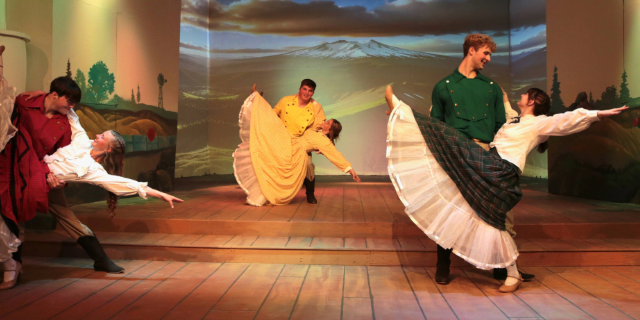What We’re Into
Published 8:58 am Monday, August 2, 2021

- Exodus
My favorite author has got to be Leon Uris. His book “Exodus” I read after learning the book’s movie theme on the piano and I wanted to know what it was about. I saw the movie but, like they often say, the book is so much better. At more than 500 pages, it goes into much greater detail.
“Exodus” is the story of the modern settling of Jews in the Holy Land — at least since the late 1800s — and their work and fight to reestablish the nation of Israel. It’s about how they bought land from Arab landowners, reclaimed what was then worthless desert or swamp and turned it into — in most cases — valuable farmland.
As the British-occupied Mandate for Palestine between the world wars, it served as a place Jews could come as persecution and anti-Semitism increased in Europe. Then, despite British opposition, they got the U.N. to vote on a partition plan to divide what was left of the Palestine Mandate (the Brits unilaterally gave the lion’s share to establish the Hashemite Kingdom of Transjordan in the early 1920s) between Jews and Arabs. The Jews favored the partition plan but the Arabs in the mandate did not and, like their Nazi allies, strove to kill the Jews. They were aided by all Israel’s neighbors, but they failed and modern Israel was born.
I realized “Exodus” was fiction based on fact, but it sparked my interest in the modern Middle East, so I began reading to learn which parts of “Exodus” were fact and which were Leon Uris’ fiction. It also led me to read other books on the subject, as well as others by Uris.
An American Jew, Uris started his best-selling novels with “Battle Cry,” based on his service with the U.S. Marine Corps in the Pacific during World War II. My next favorite of Uris’ books is “Mila 18,” taken from the backstory of one of the characters in “Exodus” who had fought in and survived the Warsaw Ghetto during World War II.
Also among his works are “The Angry Hills,” the story of the Greeks fighting the Nazis in WWII; “Exodus Revisited,” his documentary look at Israel; “Armageddon: A Novel of Berlin,” focusing on the Berlin Airlift; “Topaz,” a Cold War drama; “The Third Temple” (with Strike Zion by William Stevenson); “QB VII,” a British court case about a war criminal from the Holocaust; “Ireland, A Terrible Beauty” (with Jill Uris); “Trinity,” about the conflict in Ireland; “Jerusalem: A Song of Songs” (with Jill Uris); “The Haj,” an excellent effort to tell the Arab side during Israel’s rebirth; “O’Hara’s Choice,” about U.S. Marines in the 1800s; plus “Mitla Pass,” “Redemption” and “A God in Ruins.”
I’ve read most of these multiple times and my only regret is that Uris died in 2003 and there are no more of his works to read. But then, I can always read some again.
— Bill Bradshaw, Wallowa County Chieftain





